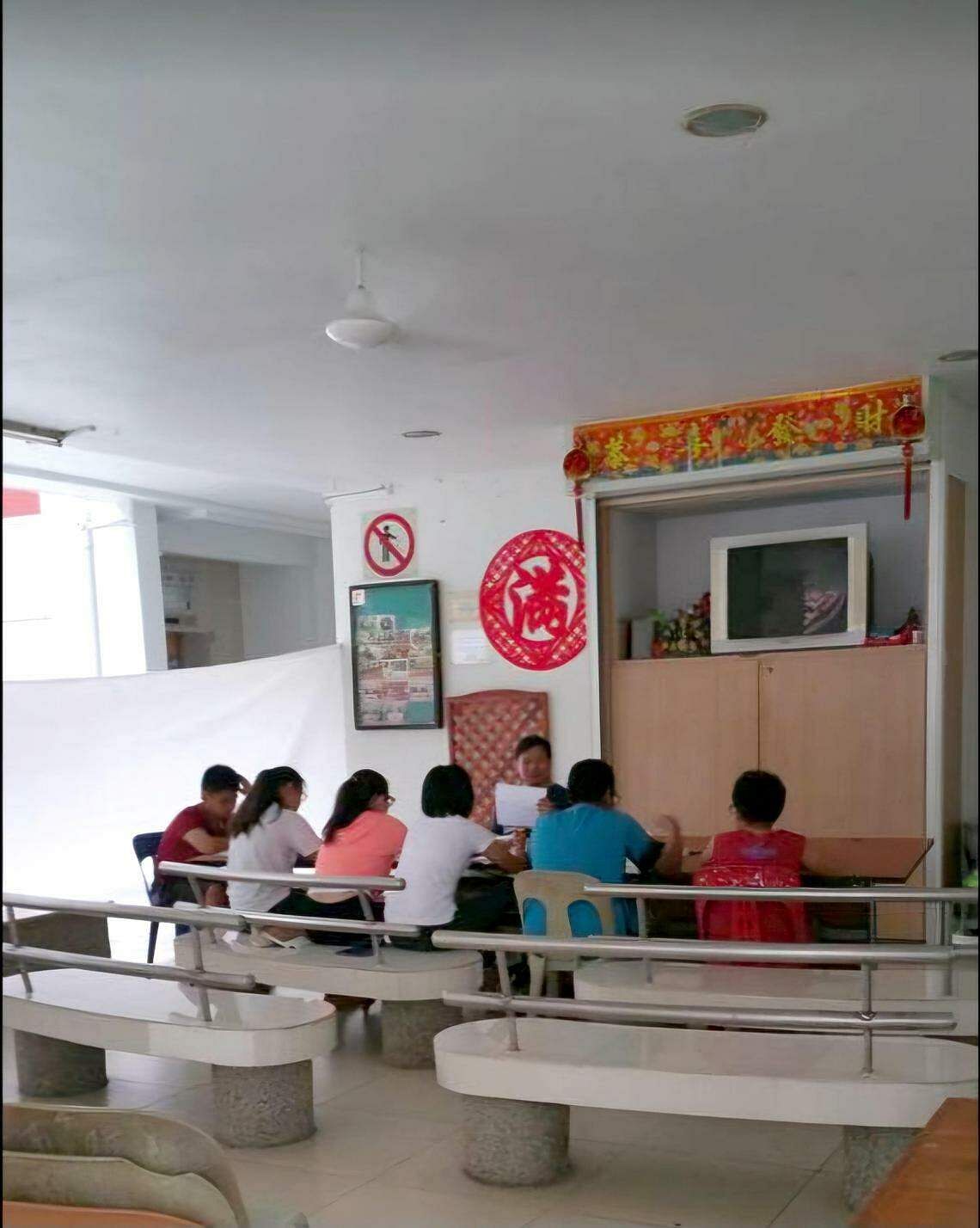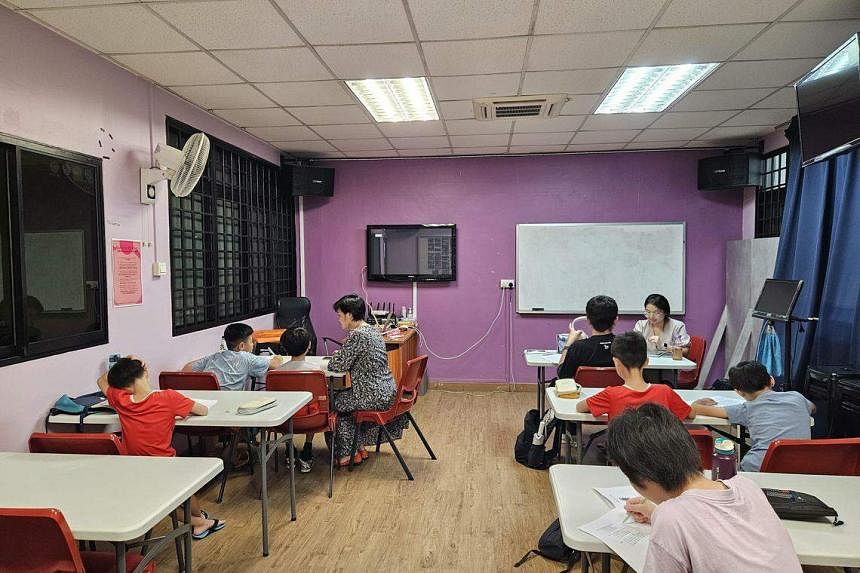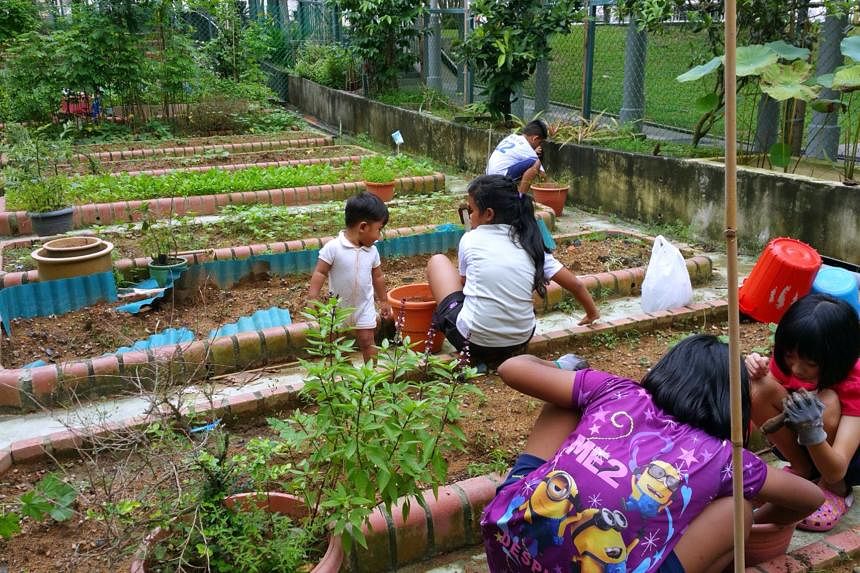SINGAPORE - If 12-year-old Niu Yi Cheng were to return to an empty house after school and realise he had forgotten his keys, he would know where to look for help in his HDB estate.
His mother, Madam Yin Ying, 44, who works in the bioscience sector, has not felt uneasy about leaving her son alone in the area since she moved to Bedok Reservoir in 2022.
Madam Yin also entrusts her house keys with one of her neighbours – Madam Sandy Goh, 56, who leads many initiatives in the Housing Board estate.
Madam Goh, a part-time clerk, cooks and looks after Yi Cheng and other children from time to time.
Her three children, aged 14 to 20, grew up in the neighbourhood and were also “passed around different households” when she was busy at work.
Raised in a kampung in Tai Seng, Madam Goh said she wants to bring back a sense of community.
She started organising free initiatives – from haircut services to making festive decorations – in 2011 at the senior residents’ corner at Block 702.
She garnered the support of volunteers, mostly those who live nearby.
In 2022, she decided to register a society, Sharing Passion, that runs these activities.
At the corner, residents can take part in food distribution and collection, and in leisure activities and parties.
These activities have over time fostered much trust among neighbours, said Madam Goh.
She added that parents and grandparents offer to look after other children and watch out for strangers, even taking videos of the young ones’ interactions with strangers to alert their parents, she said.
Madam Goh also started enrichment programmes for children when she noticed they were hanging around the estate.
Working parents can drop their children off for a few hours at the corner that is manned daily by her.
About 10 to 20 children regularly take part in activities that she and the team of volunteers organise, such as farming, lion dance, in-line skating, and arts and craft.
The Ministry of Social and Family Development announced on March 6 that it would be launching a new childminding scheme to give parents another infant care option.
For the Bedok Reservoir community, Madam Goh said: “It’s just (like) a kampung taking care of children, we are not professional nannies.”
“Tumpang” (Malay word to mean having one’s items carried by another or hitching a ride) best describes this system of community-based childminding, she added.
Many of the neighbourhood children return to volunteer when they are older, she said.

Retiree Zheng Guifang, 63, who lives in a condominium in Bedok Reservoir, volunteers with Madam Goh’s programmes, helping with food distributions. She occasionally looks after her granddaughter’s friends and brings them swimming.
When asked if she is worried about her son’s safety, Madam Yin said: “I feel at ease.
“Singapore is safe, and this neighbourhood is even safer because we all know who lives where, where the children are, and what’s going on in many households.”
If she can, she also helps look after her son’s friends in her home when their parents are busy.
A former teacher, Madam Yin volunteers on Sundays by teaching Chinese to primary school children in the neighbourhood, including her own son.
The lessons used to take place at the senior residents’ corner before moving to Madam Yin’s living room due to the heat.
In March, the Residents’ Committee loaned them a classroom to conduct lessons.
Madam Goh acknowledged the limitations of the volunteer-led system, as manpower can be an issue, and mathematics and English-language teachers are needed before such classes can start, she said.

Institute of Policy Studies senior research fellow Justin Lee said this kind of ground-up initiative may raise questions from parents about children’s safety, especially if it is compared with professional care services.
“When you are comparing this ‘kampung’ that takes literally the adage ‘it takes a village to raise a child’, are you comparing it to what an after-school care centre offers, or to what your grandparents or relatives might do?”
Generally, Singapore society has over-professionalised many aspects of our lives, he said.
Dr Lee said he is a big proponent of peer-to-peer learning, adding that if the capacities of communities are unlocked, parents do not need to rely solely on market solutions.
“Being part of a community is sorely missing in our children’s and our own lives – the sense that there is a group of people you feel a sense of belonging or solidarity with, and whose fates you think are intertwined with your own,” he added.

